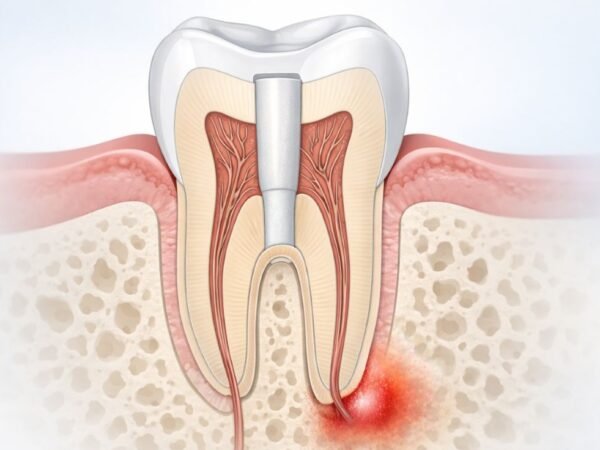Omega-3 fatty acids are well-known for their numerous health benefits, particularly for heart and brain health. But can they also aid in weight loss? In this article, we will explore the potential weight loss benefits of Omega-3 fatty acids, understand the mechanisms behind their effects, and provide tips on how to incorporate them into your diet for effective weight management.
Understanding Omega-3 Fatty Acids
Omega-3 fatty acids are essential polyunsaturated fats that our bodies cannot produce independently. They must be obtained through diet or supplements. The three main types of Omega-3s are Alpha-linolenic acid (ALA), Eicosapentaenoic acid (EPA), and Docosahexaenoic acid (DHA). ALA is primarily found in plant oils, while EPA and DHA are mostly in fish and marine oils.
The Role of Omega-3 Fatty Acids in Weight Loss
Enhancing Metabolic Rate
One way omega-3 fatty acids may aid in weight loss is by boosting metabolic rate. Studies have shown that Omega-3s can increase the number of calories your body burns at rest. This is primarily due to their ability to enhance mitochondrial function, which increases energy expenditure.
Reducing Appetite and Cravings
Omega-3 fatty acids may help reduce appetite and cravings, which can lead to lower calorie intake. EPA and DHA have been found to increase levels of the hormone leptin, which helps regulate hunger and signals to the brain when you are full. This can be particularly beneficial for those struggling with overeating or frequent snacking.
Improving Fat Oxidation
Fat oxidation is the process by which your body breaks down fatty acids for energy use. Omega-3 fatty acids have been shown to enhance this process, leading to increased fat burning. This can contribute to weight loss, especially with regular exercise and a balanced diet.
How Omega-3 Fatty Acids Affect Body Composition
Preserving Lean Muscle Mass
When losing weight, it’s essential to preserve lean muscle mass. Omega-3 fatty acids can help achieve this by promoting muscle protein synthesis and reducing muscle protein breakdown. This helps maintain muscle mass and supports a higher metabolic rate, aiding in further weight loss.
Reducing Inflammation
Chronic inflammation can contribute to weight gain and make it more challenging to lose weight. Omega-3 fatty acids have potent anti-inflammatory properties that can help reduce inflammation. By lowering inflammation, Omega-3s can support a healthier metabolism and improve weight loss outcomes.
Best Sources of Omega-3 Fatty Acids for Weight Loss
Fatty Fish
Fatty fish such as salmon, mackerel, sardines, and trout are excellent sources of EPA and DHA. These fish provide high-quality protein and essential nutrients along with Omega-3s. Including fatty fish in your diet at least twice weekly can support weight loss efforts.
Plant-Based Sources
For those following a plant-based diet, flaxseeds, chia seeds, and walnuts are excellent sources of ALA. These seeds can be easily added to smoothies, oatmeal, or salads. Flaxseed oil is also a concentrated source of ALA and can be used as a salad dressing or in smoothies.
Omega-3 Supplements
If getting enough Omega-3s from food alone is challenging, consider taking fish or algal oil supplements. These supplements provide a convenient way to increase your intake of EPA and DHA. Ensure you choose high-quality supplements that are free from contaminants.
Incorporating Omega-3 Fatty Acids into Your Diet
Eating Fish Regularly
Incorporate fatty fish into your meals at least twice a week. Grilled, baked, or broiled fish are healthy preparation methods that preserve the Omega-3 content. Avoid frying fish as it can reduce the health benefits.
Adding Seeds and Nuts to Meals
Add flaxseeds, chia seeds, and walnuts to your diet. Sprinkle them on salads and cereals, or blend them into smoothies. They provide a convenient and tasty way to boost your Omega-3 intake.
Using Omega-3-Rich Oils
Use oils high in Omega-3s, such as flaxseed, in your cooking routine. Flaxseed oil is excellent for salad dressings or drizzling overcooked vegetables. Avoid heating these oils to preserve their nutritional value.
Combining Omega-3s with a Healthy Lifestyle
Regular Exercise
Regular exercise is crucial for weight loss and overall health. Combining Omega-3 fatty acids with a consistent exercise routine can enhance fat-burning and support muscle maintenance. Aim for cardiovascular exercises, strength training, and flexibility workouts.
Balanced Diet
A balanced diet rich in whole foods, lean proteins, healthy fats, and plenty of fruits and vegetables is essential for weight loss. Omega-3 fatty acids should be part of this balanced diet, supporting your weight loss goals.
Staying Hydrated
Proper hydration is essential for overall health and can aid in weight loss. Drinking enough water helps maintain metabolism, reduces hunger, and supports the body’s ability to burn fat. Aim for at least eight glasses of water a day.
Conclusion
Omega-3 fatty acids offer several benefits that can aid in weight loss, including enhancing metabolic rate, reducing appetite, improving fat oxidation, and preserving lean muscle mass. Incorporating Omega-3-rich foods like fatty fish, seeds, nuts, and supplements into your diet can support your weight loss efforts and improve overall health. Remember to combine these dietary changes with regular exercise, a balanced diet, and proper hydration for the best results.
With a comprehensive approach that includes Omega-3 fatty acids, you can achieve your weight loss goals while promoting a healthy heart and mind. Start today by making minor changes to your diet and lifestyle, and experience the benefits of these essential fats.
Also Read Interesting articles at Disboard













